CORPORATE ACTION: Aldi
Aldi UK Reveals Own-Brand Wines That Come In 100 Percent Recycled PET Bottles

Aldi UK announced its own-brand Chapter & Verse Shiraz and Chapter & Verse Chardonnay that come in 100 percent recycled PET bottles, the first of their kind in the country. At just 63 grams, the recycled and shatterproof PET bottles are almost seven times lighter and stronger than their glass counterparts. Also, its compact design allows for 30 percent more bottles to be loaded onto pallets, requiring 30 percent fewer trucks to transport them to supermarkets.[Image Credit: © Aldi]
Flexible Plastic Fund’s AI Certification System Confirms Volume Of Plastic Waste Aldi UK Recycled
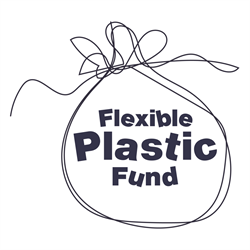
In February 2024, Aldi UK received the first certificate created by eco2Veritas confirming that it recycled 62 tonnes of in-scope polyethylene and 25 tonnes of in-scope polypropylene plastic waste. Greenback Recycling Technologies developed eco2Veritas, an artificial intelligence-powered technology that monitors and certifies the volume and process of plastic recycling. The Flexible Plastic Fund supports retailers by providing independent monitoring and verification of the flow of materials using the AI-powered evidence system.[Image Credit: © The Flexible Plastic Fund / Ecosurety]
CORPORATE ACTION: Amazon
Investigation Reveals Only Small Fraction Of Amazon’s Plastic Packaging Is Recycled
 Contrary to Amazon’s recycling claim, only a small fraction of the online retailer’s plastic packaging reaches a material recovery facility, according to a published report by the nonprofits Environment America and US Public Interest Research Group. To determine what happens to Amazon’s plastic packaging, researchers attached small tracking devices to bundles of packaging deposited at retailers in 10 states. Results of the analysis revealed that only four of the 93 trackers made it to a material recovery facility that sorts plastics for recycling.[Image Credit: © Brian Yurasits on Unsplash]
Contrary to Amazon’s recycling claim, only a small fraction of the online retailer’s plastic packaging reaches a material recovery facility, according to a published report by the nonprofits Environment America and US Public Interest Research Group. To determine what happens to Amazon’s plastic packaging, researchers attached small tracking devices to bundles of packaging deposited at retailers in 10 states. Results of the analysis revealed that only four of the 93 trackers made it to a material recovery facility that sorts plastics for recycling.[Image Credit: © Brian Yurasits on Unsplash]
CORPORATE ACTION: Johnson & Johnson
Johnson’s Baby Unveils New Refills In Environment-Friendly Packaging
 Johnson’s Baby introduced 33.8-ounce refills, which come in recyclable packaging made from 88 percent less plastic. Available for the brand’s Bedtime Bath, Baby Shampoo, and Head to Toe Wash and Shampoo product ranges, the refills offer 25 percent more content and cost 15 percent less than similar products that come in 400ml bottles.[Image Credit: © Johnson & Johnson Consumer Inc.]
Johnson’s Baby introduced 33.8-ounce refills, which come in recyclable packaging made from 88 percent less plastic. Available for the brand’s Bedtime Bath, Baby Shampoo, and Head to Toe Wash and Shampoo product ranges, the refills offer 25 percent more content and cost 15 percent less than similar products that come in 400ml bottles.[Image Credit: © Johnson & Johnson Consumer Inc.]
CORPORATE ACTION: Lush
Lush Launches Bottle Packaging Made From Certified Prevented Ocean Plastic
 UK cosmetics retailer Lush partnered with Spectra Packaging to introduce 100ml, 250ml and 500ml bottles made from certified recycled Prevented Ocean Plastic. Shoppers can return empty Lush packaging through the Bring it Back program. Launched in 2021, the recycling program has accepted 2.27 million items, or about 55.5 tonnes of plastic stopped from becoming plastic waste.[Image Credit: © Lush Ltd]
UK cosmetics retailer Lush partnered with Spectra Packaging to introduce 100ml, 250ml and 500ml bottles made from certified recycled Prevented Ocean Plastic. Shoppers can return empty Lush packaging through the Bring it Back program. Launched in 2021, the recycling program has accepted 2.27 million items, or about 55.5 tonnes of plastic stopped from becoming plastic waste.[Image Credit: © Lush Ltd]
CORPORATE ACTION: Procter & Gamble
Procter & Gamble Reaches Significant Sustainability And Clean Energy Milestones In India
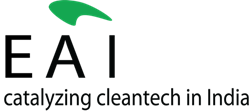 Procter & Gamble highlighted achievements related to sustainability and clean energy in India. The company is working with recycling partners across 75 cities in the country to collect and recycle plastic waste. Also, the company achieved “plastic waste neutrality” by recycling 100 percent of its post-consumer plastic packaging waste[Image Credit: © Energy Alternatives India (EAI)]
Procter & Gamble highlighted achievements related to sustainability and clean energy in India. The company is working with recycling partners across 75 cities in the country to collect and recycle plastic waste. Also, the company achieved “plastic waste neutrality” by recycling 100 percent of its post-consumer plastic packaging waste[Image Credit: © Energy Alternatives India (EAI)]
Procter & Gamble Settles Case Involving False Recycling Claim In The Philippines
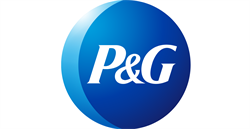 Procter & Gamble settled with environmentalist groups and members of fishing communities in the Philippines in response to complaints filed of false and misleading recycling claims. The complainants filed complaints against P&G and other consumer companies, including Unilever, Coca-Cola, Pepsi and Colgate, but only P&G has so far chosen to negotiate with the groups. The case filed with the Department of Trade and Industry’s Fair Trade Enforcement Bureau claimed the seven companies’ recycling claims were misleading because not all plastics are recyclable.[Image Credit: © Procter & Gamble]
Procter & Gamble settled with environmentalist groups and members of fishing communities in the Philippines in response to complaints filed of false and misleading recycling claims. The complainants filed complaints against P&G and other consumer companies, including Unilever, Coca-Cola, Pepsi and Colgate, but only P&G has so far chosen to negotiate with the groups. The case filed with the Department of Trade and Industry’s Fair Trade Enforcement Bureau claimed the seven companies’ recycling claims were misleading because not all plastics are recyclable.[Image Credit: © Procter & Gamble]
CORPORATE ACTION: Reckitt Benckiser
Dettol’s Advertising Campaign Highlights Ease Of Refilling Bottles For Cleaning Products
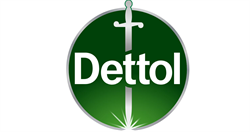 McCann London launched an advertising campaign for Reckitt’s Dettol cleaning brand that highlights how any 750ml spray bottle can become a bottle of Dettol with the brand’s Refill range of products. The campaign, “Makes any bottle a bottle of Dettol”, aims to show that refilling does not have to be confusing. It also offers a solution to the “hassle” as a barrier to adoption of refilling cited by 22 percent of consumers, according to Tesco Media and Insight Platform 2022.[Image Credit: © Reckitt Benckiser]
McCann London launched an advertising campaign for Reckitt’s Dettol cleaning brand that highlights how any 750ml spray bottle can become a bottle of Dettol with the brand’s Refill range of products. The campaign, “Makes any bottle a bottle of Dettol”, aims to show that refilling does not have to be confusing. It also offers a solution to the “hassle” as a barrier to adoption of refilling cited by 22 percent of consumers, according to Tesco Media and Insight Platform 2022.[Image Credit: © Reckitt Benckiser]
Tide To Launch Environment-Friendly Laundry Care Product At SXSW 2024
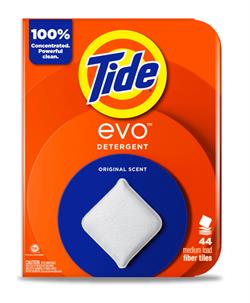
Tide plans to introduce its Tide evo laundry care product at the SXSW 2024. According to the brand, Tide evo comes in a laundry tile form and was developed to address consumer demand for a “lighter, faster and simpler” laundry care product. In addition to its innovative form, the product also features six layers of 100 percent concentrated cleaning ingredients. The product is manufactured in a factory powered by renewable energy and includes Forest Stewardship Council-certified recyclable paper packaging.[Image Credit: © Procter & Gamble]
CORPORATE ACTION: Unilever
SC Johnson Works With Amazon To Reduce Packaging For Windex Products
 SC Johnson partnered with Amazon to launch the Ships in Product Packaging initiative for the Windex brand of cleaning products. SC Johnson was able to reduce its packaging materials by 58 tonnes of paper and 4 tonnes of plastic since the initiative was launched in September 2023. The initiative is one of the strategies adopted by the company to reduce packaging waste and increase the recyclability of plastic waste. Latest research shows that between two and 14 percent of packaging materials are recycled, with the rest going to landfills or to the environment.[Image Credit: © S.C. Johnson & Son Inc.]
SC Johnson partnered with Amazon to launch the Ships in Product Packaging initiative for the Windex brand of cleaning products. SC Johnson was able to reduce its packaging materials by 58 tonnes of paper and 4 tonnes of plastic since the initiative was launched in September 2023. The initiative is one of the strategies adopted by the company to reduce packaging waste and increase the recyclability of plastic waste. Latest research shows that between two and 14 percent of packaging materials are recycled, with the rest going to landfills or to the environment.[Image Credit: © S.C. Johnson & Son Inc.]
CORPORATE ACTION: Other
SC Johnson And Liverpool FC Win ESA’s Sustainability Sponsorship Award
 Liverpool Football Club and corporate partner SC Johnson won the European Sponsorship Association’s 2024 Environmentally Sustainable Sponsorship Award. The judges recognized the partners’ “At work for a better world” campaign that aims to inspire football audiences and campaign for sustainability. Also, the campaign was aligned with the football club’s The Red Way strategy, which focuses on building a better future for the planet, people, and communities. In particular, the award acknowledges the campaign’s waste-collection project aimed at helping fans learn about plastic waste and promote PET recycling. [Image Credit: © The Liverpool Football Club and Athletic Grounds Limited]
Liverpool Football Club and corporate partner SC Johnson won the European Sponsorship Association’s 2024 Environmentally Sustainable Sponsorship Award. The judges recognized the partners’ “At work for a better world” campaign that aims to inspire football audiences and campaign for sustainability. Also, the campaign was aligned with the football club’s The Red Way strategy, which focuses on building a better future for the planet, people, and communities. In particular, the award acknowledges the campaign’s waste-collection project aimed at helping fans learn about plastic waste and promote PET recycling. [Image Credit: © The Liverpool Football Club and Athletic Grounds Limited]
SC Johnson Chairman And CEO Calls For Federal EPR Regulation During Senate Appearance
.jpg&width=250&height=211) SC Johnson Chairman and CEO Fisk Johnson presented to the US Senate Committee on Environment and Public Works the company’s views regarding the federal policies on Extended Producer Responsibility. Johnson said he believes only a “government regulatory framework” can push all stakeholders in the “plastic ecosystem” to work together and effectively in dealing with plastic. He said there are five reasons for this claim: Americans want stronger plastic regulation; complex state regulations will create significant cost and confusion; regulation is necessary in promoting effective collaboration and at scale; continuing growth in landfill waste is unsustainable; and virgin plastic has a greater environmental impact than recycled plastic.[Image Credit: © S.C. Johnson & Son Inc.]
SC Johnson Chairman and CEO Fisk Johnson presented to the US Senate Committee on Environment and Public Works the company’s views regarding the federal policies on Extended Producer Responsibility. Johnson said he believes only a “government regulatory framework” can push all stakeholders in the “plastic ecosystem” to work together and effectively in dealing with plastic. He said there are five reasons for this claim: Americans want stronger plastic regulation; complex state regulations will create significant cost and confusion; regulation is necessary in promoting effective collaboration and at scale; continuing growth in landfill waste is unsustainable; and virgin plastic has a greater environmental impact than recycled plastic.[Image Credit: © S.C. Johnson & Son Inc.]
CAMPAIGNS, COMMITMENTS & NGOs
Greenpeace, Everyday Plastic Continue Big Plastic Count Campaign In the UK
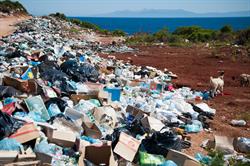 Environmentalist group Greenpeace is working with nonprofit Everyday Plastic to hold the second Big Plastic Count in the UK during March 2024. First held in 2022, the campaign seeks to emphasize the volume of plastic waste discarded by households and to call on governments and businesses to deal with the problem. According to Greenpeace and Everyday Plastic, more than 80,000 participants, including 10,000 schools, joined the survey. Results of the 2022 survey revealed households disposed of almost 2 billion pieces of plastic packaging each week and only 12 percent was recycled. 83 percent of plastic waste came from food and drink packaging.[Image Credit: © Antoine GIRET on Unsplash]
Environmentalist group Greenpeace is working with nonprofit Everyday Plastic to hold the second Big Plastic Count in the UK during March 2024. First held in 2022, the campaign seeks to emphasize the volume of plastic waste discarded by households and to call on governments and businesses to deal with the problem. According to Greenpeace and Everyday Plastic, more than 80,000 participants, including 10,000 schools, joined the survey. Results of the 2022 survey revealed households disposed of almost 2 billion pieces of plastic packaging each week and only 12 percent was recycled. 83 percent of plastic waste came from food and drink packaging.[Image Credit: © Antoine GIRET on Unsplash]
CONSUMER & PUBLIC OPINION
Survey Shows Young Americans Driving Demand For Sustainable Packaging
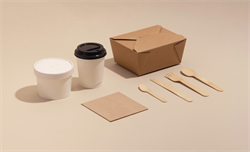 In the US, 54 percent of young consumers aged 18 to 34 said they prefer products with sustainable packaging always or often; only 33 percent of respondents 35 and older expressed the same opinion. Details of the 2024 Sustainability and Convenience in Packaging Survey, conducted by Pollfish for ALPLA, revealed that 48 percent of young consumers will not buy products that did not have sustainable packaging and 79 percent of young consumers are willing to pay more for environment-friendly packaging.[Image Credit: © Clair on Unsplash]
In the US, 54 percent of young consumers aged 18 to 34 said they prefer products with sustainable packaging always or often; only 33 percent of respondents 35 and older expressed the same opinion. Details of the 2024 Sustainability and Convenience in Packaging Survey, conducted by Pollfish for ALPLA, revealed that 48 percent of young consumers will not buy products that did not have sustainable packaging and 79 percent of young consumers are willing to pay more for environment-friendly packaging.[Image Credit: © Clair on Unsplash]
UK Consumers Think Retailers Use Too Much Packaging, Survey Shows
.jpg&width=250&height=188) In the UK, 71 percent of people think supermarkets and other retailers use “too much packaging”, while 88 percent said only recyclable material should be used in packaging. Results of a survey by YouGov for the Local Government Association also revealed that 85 percent of respondents believe the Government should require companies to cut the packaging used. Over half believe councils are more trustworthy than the Government (6 percent) or industry (8 percent) when it comes to running waste and recycling services.[Image Credit: © Franki Chamaki on Unsplash]
In the UK, 71 percent of people think supermarkets and other retailers use “too much packaging”, while 88 percent said only recyclable material should be used in packaging. Results of a survey by YouGov for the Local Government Association also revealed that 85 percent of respondents believe the Government should require companies to cut the packaging used. Over half believe councils are more trustworthy than the Government (6 percent) or industry (8 percent) when it comes to running waste and recycling services.[Image Credit: © Franki Chamaki on Unsplash]
PACKAGING REDESIGNS
Major Laundry Detergent Manufacturers Adopt Plastic-Less Packaging
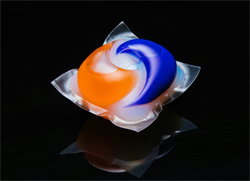 Leading laundry manufacturers are cutting their plastic packaging and expanding use of alternatives, including bio-based materials and refillable containers as part of their efforts to achieve their sustainability goals. For example, Procter & Gamble and Clorox claim that at least 75 percent of their packaging is recyclable or reusable. P&G introduced its Tide evo product in a recyclable paper box. Detergent manufacturer Mack worked with UK-based seaweed packaging company Notpla to develop seaweed-packaged laundry sachets.[Image Credit: © Erik Binggeser on Unsplash]
Leading laundry manufacturers are cutting their plastic packaging and expanding use of alternatives, including bio-based materials and refillable containers as part of their efforts to achieve their sustainability goals. For example, Procter & Gamble and Clorox claim that at least 75 percent of their packaging is recyclable or reusable. P&G introduced its Tide evo product in a recyclable paper box. Detergent manufacturer Mack worked with UK-based seaweed packaging company Notpla to develop seaweed-packaged laundry sachets.[Image Credit: © Erik Binggeser on Unsplash]
POLICY, REGULATION & LEGAL
Consumer Brands Association Commends US Senate For Passing Legislation Seeking To Improve Recycling Data And Infrastructure
 The Consumer Brands Association praised the US Senate for passing bipartisan legislation seeking to improve data collection for recycling and composting and increasing rural access to recycling infrastructure. The Recycling and Composting Accountability Act aims to establish reliable and accessible data on recycling and composting nationwide; the Recycling Infrastructure and Accessibility Act seeks to improve recycling infrastructure in the country’s rural and underserved areas.[Image Credit: © Consumer Brands Association]
The Consumer Brands Association praised the US Senate for passing bipartisan legislation seeking to improve data collection for recycling and composting and increasing rural access to recycling infrastructure. The Recycling and Composting Accountability Act aims to establish reliable and accessible data on recycling and composting nationwide; the Recycling Infrastructure and Accessibility Act seeks to improve recycling infrastructure in the country’s rural and underserved areas.[Image Credit: © Consumer Brands Association]
INNOVATION & TECHNOLOGY
Keurig Announces Plastic-Free Single-Serve Coffee Pods
 Keurig announced the new K-Rounds single-serve plastic-free and aluminum-free coffee pods. The company said the K-Rounds pods are designed for the Keurig Alta, a brewing system currently under development. Also, the company said the new coffee pods will provide a sustainable option for the 45 million American consumers who use Keurig brewing systems.[Image Credit: © Keurig Dr Pepper]
Keurig announced the new K-Rounds single-serve plastic-free and aluminum-free coffee pods. The company said the K-Rounds pods are designed for the Keurig Alta, a brewing system currently under development. Also, the company said the new coffee pods will provide a sustainable option for the 45 million American consumers who use Keurig brewing systems.[Image Credit: © Keurig Dr Pepper]
The Refill Coalition Sees Success With In-Store Standardized Dispenser System
 After a six-month trial run, The Refill Coalition is expanding its standardized dispenser system to a second Aldi store in the UK. Launched in October 2023, the system features a container designed to be refillable with products from different manufacturers, can be transported to and installed in stores, and refilled at scale. The system lets shoppers bring their own container, use an in-store paper bag, or buy a reusable plastic vessel. Empty containers are collected, cleaned and returned to manufacturers to be refilled.[Image Credit: © Anja from Pixabay]
After a six-month trial run, The Refill Coalition is expanding its standardized dispenser system to a second Aldi store in the UK. Launched in October 2023, the system features a container designed to be refillable with products from different manufacturers, can be transported to and installed in stores, and refilled at scale. The system lets shoppers bring their own container, use an in-store paper bag, or buy a reusable plastic vessel. Empty containers are collected, cleaned and returned to manufacturers to be refilled.[Image Credit: © Anja from Pixabay]
Smartfill Packaging System Allows Retailers To Sell Packageless Products
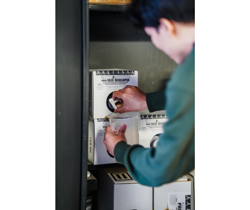 Results of test runs for the Smartfill packageless packaging conducted by consumer goods manufacturers revealed that the technology can promote sustainable packaging in the retail industry. Developed jointly by Smollan and DY/DX, the technology is designed to provide retailers with a “smart, efficient and sustainable solution”. South African retailer Spar Tembisa reported the success of a Smartfill pilot that allowed shoppers to buy and pay only for amount of product they wanted. Unilever also implemented a Smartfill pilot, allowing shoppers in Bangladesh to buy products in a packageless format.[Image Credit: © Annushka Ahuja on Pexels]
Results of test runs for the Smartfill packageless packaging conducted by consumer goods manufacturers revealed that the technology can promote sustainable packaging in the retail industry. Developed jointly by Smollan and DY/DX, the technology is designed to provide retailers with a “smart, efficient and sustainable solution”. South African retailer Spar Tembisa reported the success of a Smartfill pilot that allowed shoppers to buy and pay only for amount of product they wanted. Unilever also implemented a Smartfill pilot, allowing shoppers in Bangladesh to buy products in a packageless format.[Image Credit: © Annushka Ahuja on Pexels]
RESEARCH
Companies Need To See Sustainability As A Business Opportunity
 Fast moving consumer goods companies need to understand that complying with sustainability requirements is “not only a moral requirement but also a business opportunity”. Worldwide, 64 percent of consumers are worried about climate change and are trying to have a positive impact on the environment with daily actions, according to Euromonitor International’s Voice of the Consumer: Sustainability Survey. Also, data from Euromonitor Sustainability Products Claims Tracker report revealed that sustainable products outperformed their non-sustainable counterparts in eight of 11 industries in terms of retail sales CAGR from 2020 to 2022. Consumer brands and retailers are redesigning their packaging to improve margins and efficiencies, as well as minimizing their environmental footprint by reducing the amount of raw materials used and total product weight.[Image Credit: © Thomas Richter on Unsplash]
Fast moving consumer goods companies need to understand that complying with sustainability requirements is “not only a moral requirement but also a business opportunity”. Worldwide, 64 percent of consumers are worried about climate change and are trying to have a positive impact on the environment with daily actions, according to Euromonitor International’s Voice of the Consumer: Sustainability Survey. Also, data from Euromonitor Sustainability Products Claims Tracker report revealed that sustainable products outperformed their non-sustainable counterparts in eight of 11 industries in terms of retail sales CAGR from 2020 to 2022. Consumer brands and retailers are redesigning their packaging to improve margins and efficiencies, as well as minimizing their environmental footprint by reducing the amount of raw materials used and total product weight.[Image Credit: © Thomas Richter on Unsplash]
US Plastics Pact 2022 Report Shows Increase In Use Of Sustainable Plastic Packaging
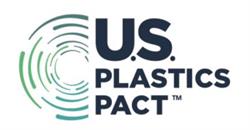 US Plastics Pact member organizations reduced their use of plastic packaging containing items classified under Problematics and Unnecessary Materials List from 14 percent in 2021 to 8 percent in 2022. Details from the organization’s most recent report, which includes data released by member organizations in 2022, revealed that reuseable, recyclable or compostable plastic packaging increased from 36 percent to 47.7 percent during the same period. Use of postconsumer recycled content or responsibly sourced bio-based content in plastic packaging grew from 8 percent to 9.4 percent.[Image Credit: © U.S. Plastics Pact]
US Plastics Pact member organizations reduced their use of plastic packaging containing items classified under Problematics and Unnecessary Materials List from 14 percent in 2021 to 8 percent in 2022. Details from the organization’s most recent report, which includes data released by member organizations in 2022, revealed that reuseable, recyclable or compostable plastic packaging increased from 36 percent to 47.7 percent during the same period. Use of postconsumer recycled content or responsibly sourced bio-based content in plastic packaging grew from 8 percent to 9.4 percent.[Image Credit: © U.S. Plastics Pact]
Copyright 2026 Business360, Inc.

